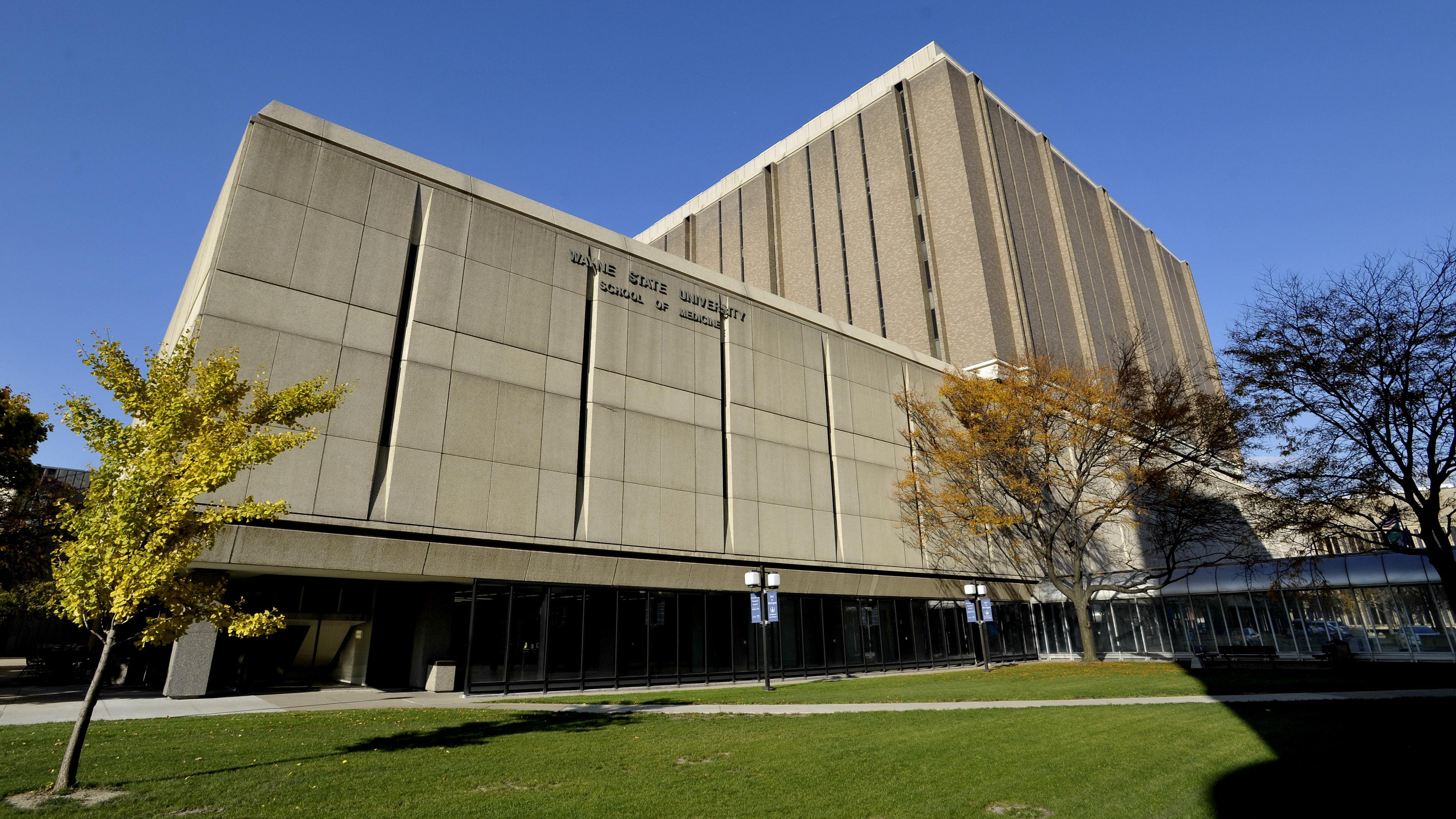Wayne State doctors: School skimmed $60M in Medicaid aid
 Karen Bouffard
Karen Bouffard
Groups representing Wayne State University pediatricians, heart and vascular doctors, anesthesiologists and other specialists are accusing the university of improperly taking of tens of millions in Medicaid funds that they say they are owed but never received.
One group alone — University Pediatricians, representing 220 pediatricians at DMC Children's Hospital of Michigan — argues Wayne State's School of Medicine has shortchanged it by as much as over $60 million over the past seven years.
It has asked a Detroit federal bankruptcy judge to review how the Medicaid funds were distributed as part of an insolvency case for another university-affiliated physicians group through which the federal money is funneled to other doctors' groups.
Other groups, including Northstar Anesthesia of Michigan, Heart & Vascular Consultants, ARK Cardiovascular & Arrhythmia Center and others, have also registered concerns, according to court filings.
The Medical Center Emergency Services physician group submitted a claim to the bankruptcy court that it is owed more than $20.7 million.
A court filing by ARK, the cardiovascular practice, shows a $1.2 million gap between the Medicaid funding it was paid in 2016, 2017 and 2018, and ARK believes it is owed.
Wayne State officials counter that "any allegations by University Pediatricians that imply illegal behavior on the part of medical school leadership are dead wrong and highly irresponsible."
At issue is money from the Medicaid Enhanced Payment Program, which is intended to increase access to health care by boosting the pay of physicians who work in poor or underserved areas. The government cash flows to physicians through six university medical centers, including Wayne State's, and Hurley Medical Center in Flint.
At Wayne State University, approximately $100 million to $125 million annually in Medicaid funding has historically been distributed to doctors by the University Physician Group. The group represents about 250 physicians, most of whom are on the Wayne State University Medical School faculty and work at teaching hospitals that are part of the Detroit Medical Center.
Bankruptcy prompts aid review
University Physician Group (UPG) declared bankruptcy in November, but continues to operate as its finances are restructured in Detroit's federal bankruptcy court. The group said it had $11.5 million in Medicaid funds at the time of the bankruptcy filing.
The bankruptcy has triggered a second look at how the federal funds are distributed by physician practices that aren't part of the University Physician Group, but still depend on Wayne State and UPG to hand over their Medicaid enhancement payments.
"UPG served strictly as a pass-through agent in the (Medicaid) program," UPG said in a statement to The Detroit News. "All decisions regarding payment amounts to providers and disbursement of (Medicaid) funds were made by WSU."
After a Dec. 10 hearing, Judge Mark Randon of the U.S. Bankruptcy Court for the Eastern District of Michigan Southern Division issued a final order that allows UPG to use its bank accounts and cash management system while its finances are sorted out. But the order didn't address issues surrounding the $11.5 million in Medicaid funds.
On Jan. 4, the University Pediatrician group filed a motion asking for a full examination of how the Medicaid funds were handled, arguing that Wayne State University executives for several years had shifted the funds between UPG, the medical school and the university's Fund for Medical Research in Education.
The motion noted that during a Dec. 10 meeting of creditors, University Physician Group CEO Dr. Charles J. Shanley "stated that he had no knowledge about the history of the financial mismanagement of the Debtor that led to the Bankruptcy Petition" and was unable to answer questions about such things as what books and records were used to track Medicaid payments from the state, or calculate sums owed to physicians. Shanley was named CEO of UPG in March 2018.
Why WSU keeps some aid
In a statement, Wayne State said "(University Pediatricians) has received every penny it was due under this program, and no UP doctors’ salaries have been affected."
At the urging of University Pediatricians and other creditors, Judge Randon on Jan. 7 ruled that the $11.5 million in UPG's possession was not the group's property. The judge ordered UPG to create a plan for disbursing the federal funds.
But University Pediatricians, along with Northstar Anesthesia of Michigan and Heart and Vascular Consultants, on Jan. 14 jointly objected to a proposed disbursement plan by UPG, saying "the Physician Groups do not know exactly what they are owed, but believe that the (Medicaid funds) are by themselves inadequate.
On Jan. 19, University Physician Group filed an objection to the pediatricians' motion seeking a review of the Medicaid funds, saying the judge lacks the jurisdiction to grant such an order following Randon's ruling that UPG doesn't own the Medicaid money.
University Pediatricians compared data it received from the Michigan Attorney General's Office showing the amount of Medicaid funds paid to Wayne State University on its behalf with bank statements that showed how much it had received from UPG, said Mark Harrison, chief administrative officer of University Pediatricians.
Harrison said he believes the pediatricians group has been wrongly portrayed as a lone wolf in its efforts to hold UPG accountable.
"In addition to University Pediatricians, there are five other physician groups with sizable claims, and the magnitude of these combined claims is staggering," he said in a statement to The News.
"A bedrock foundation of bankruptcy is transparent disclosure of the finances, which is not taking place," Harrison said. "This is not a simple bankruptcy case ... we are simply asking to shed light on the process."
"The program was designed to ensure that the most vulnerable members of our community have access to a world-class specialist," he added. "The funds paid under the program were intended for the providers of those services to the Medicaid patients, not for university programs and balancing of budgets."
But Wayne State insisted it has done nothing wrong and is properly claiming a slice of the federal money.
"Wayne State uses the funds it retains under this program for the intended purpose of increasing access to equitable health care for the Detroit Medicaid population," the university's statement said.
kbouffard@detroitnews.com
Twitter: @kbouffardDN